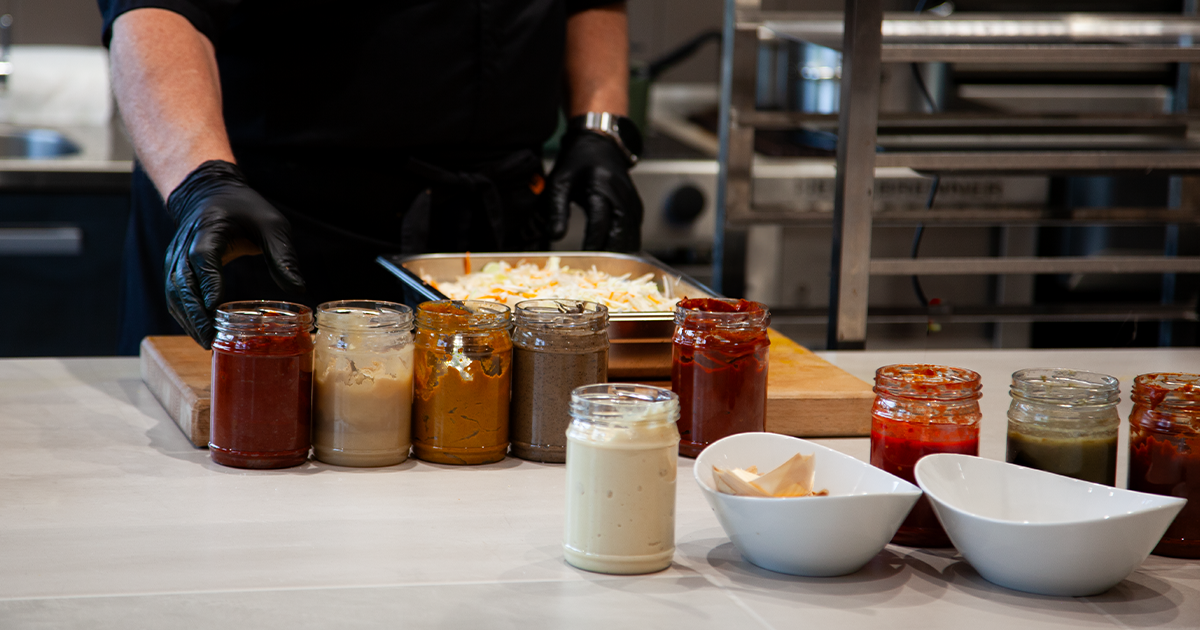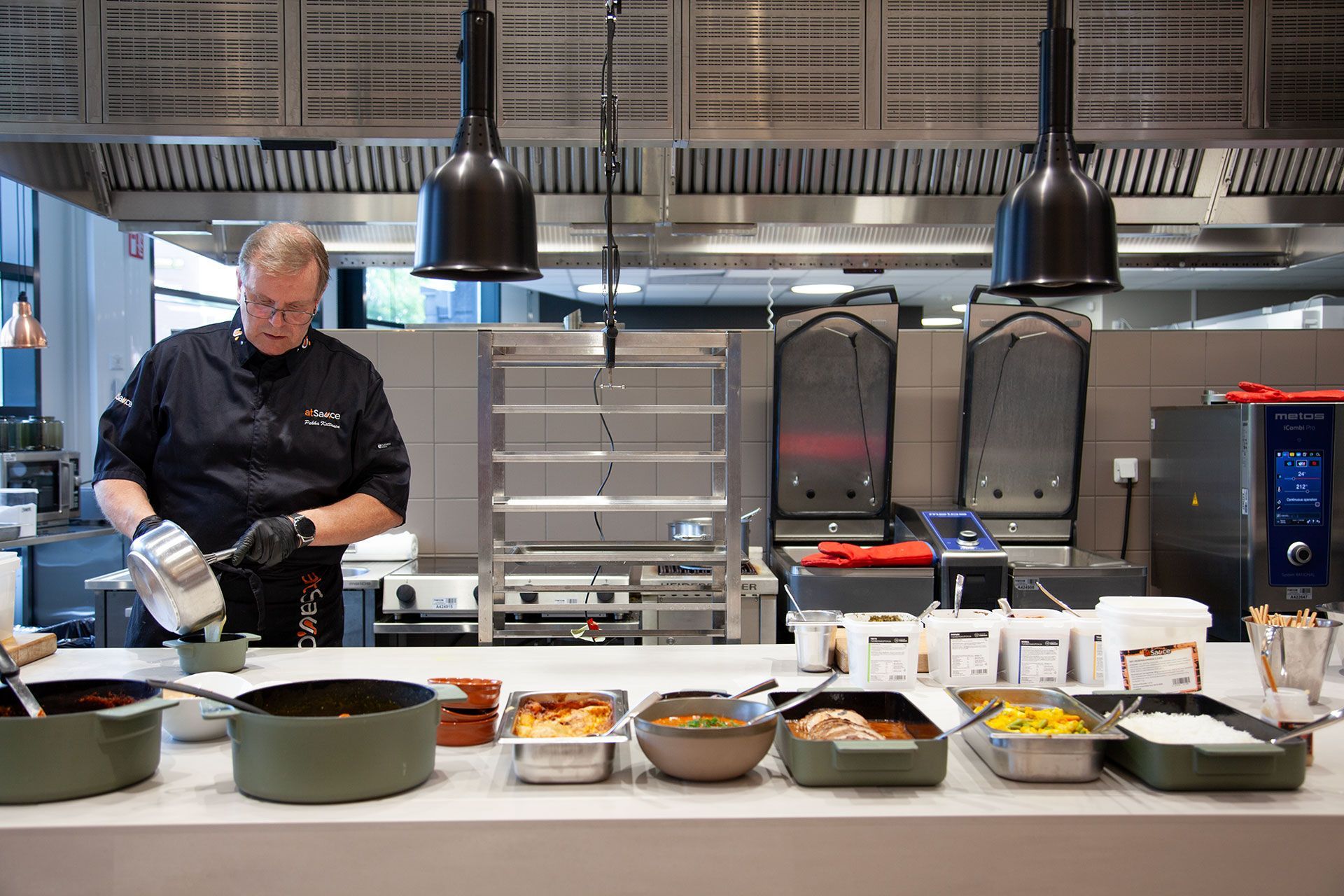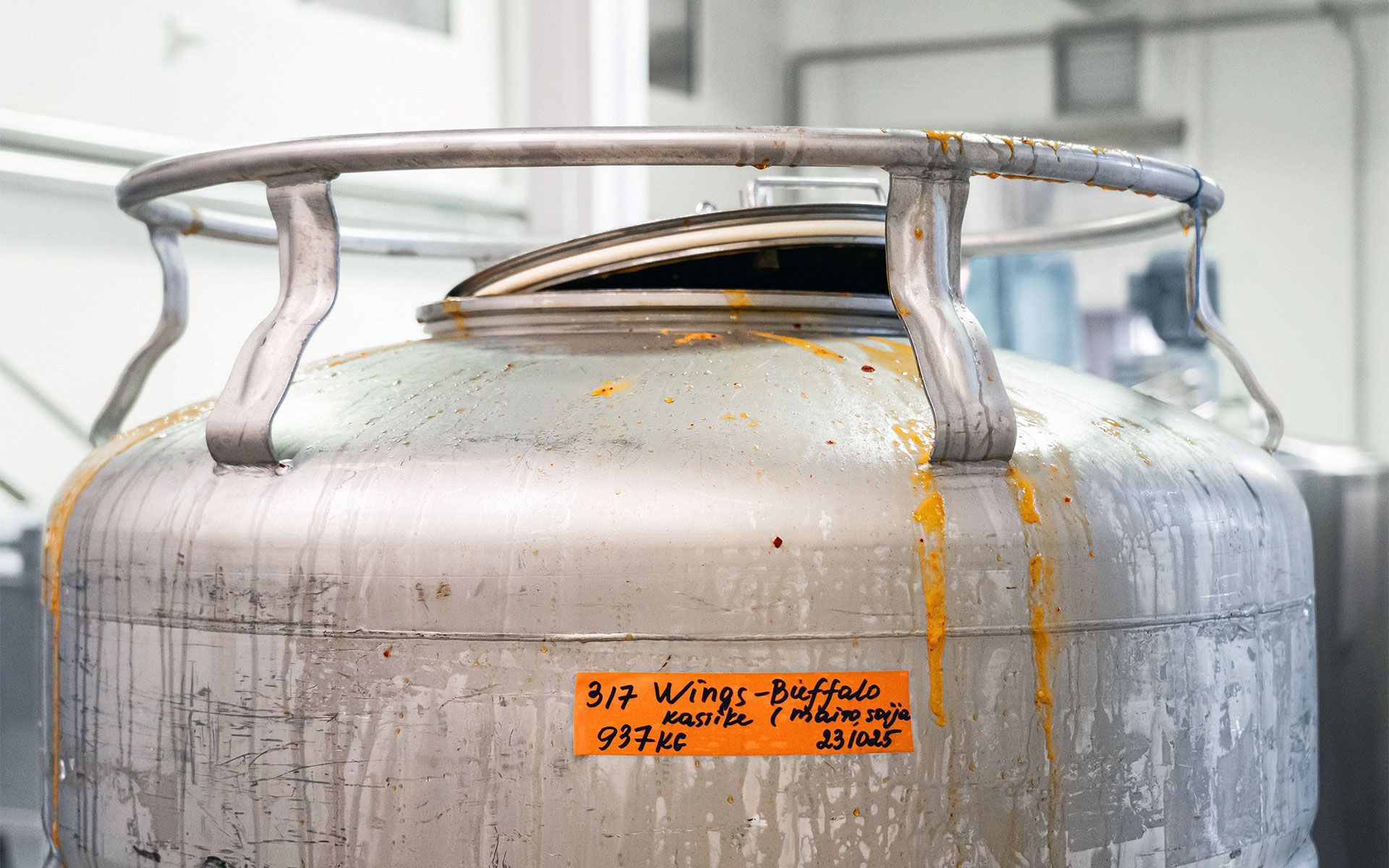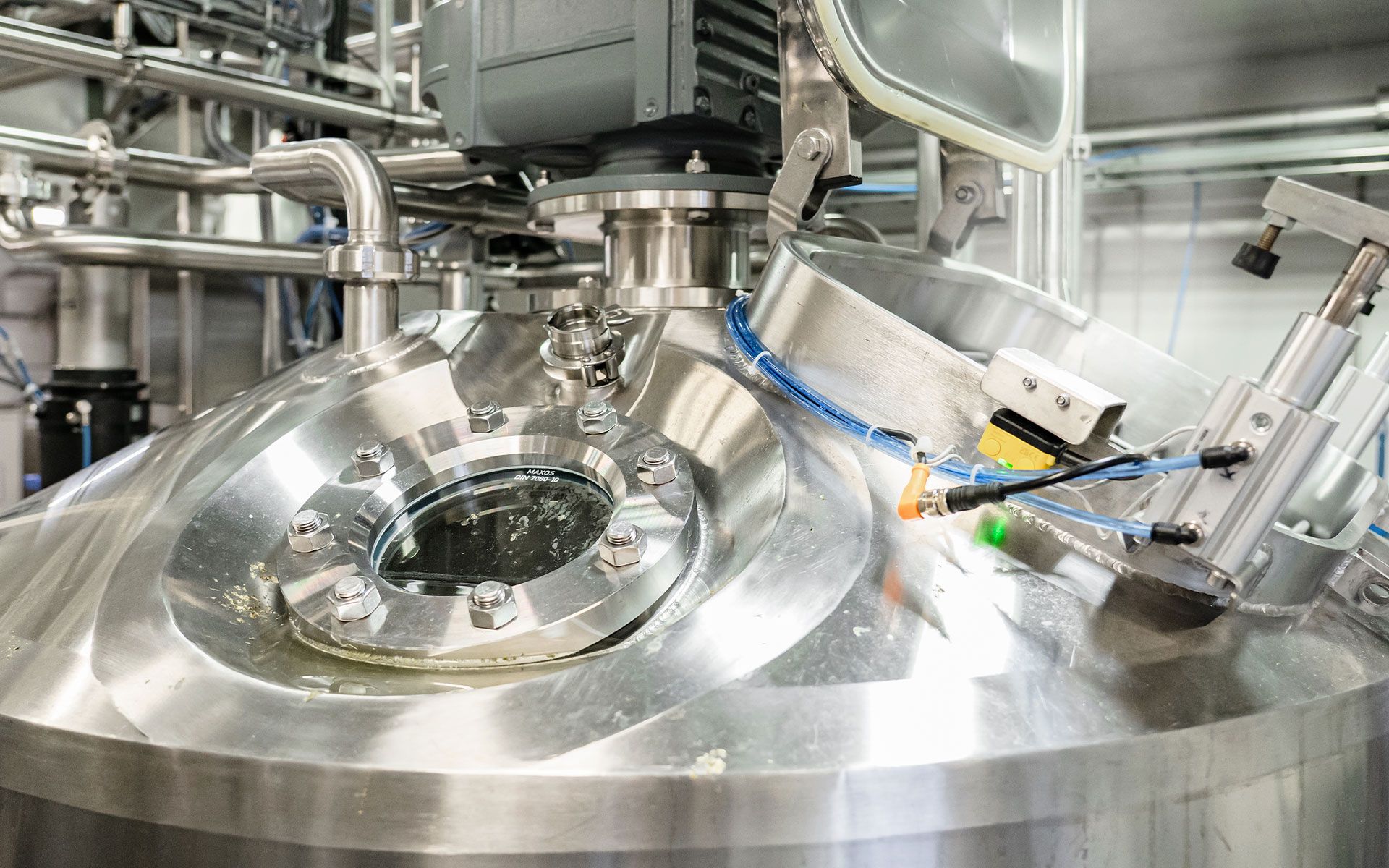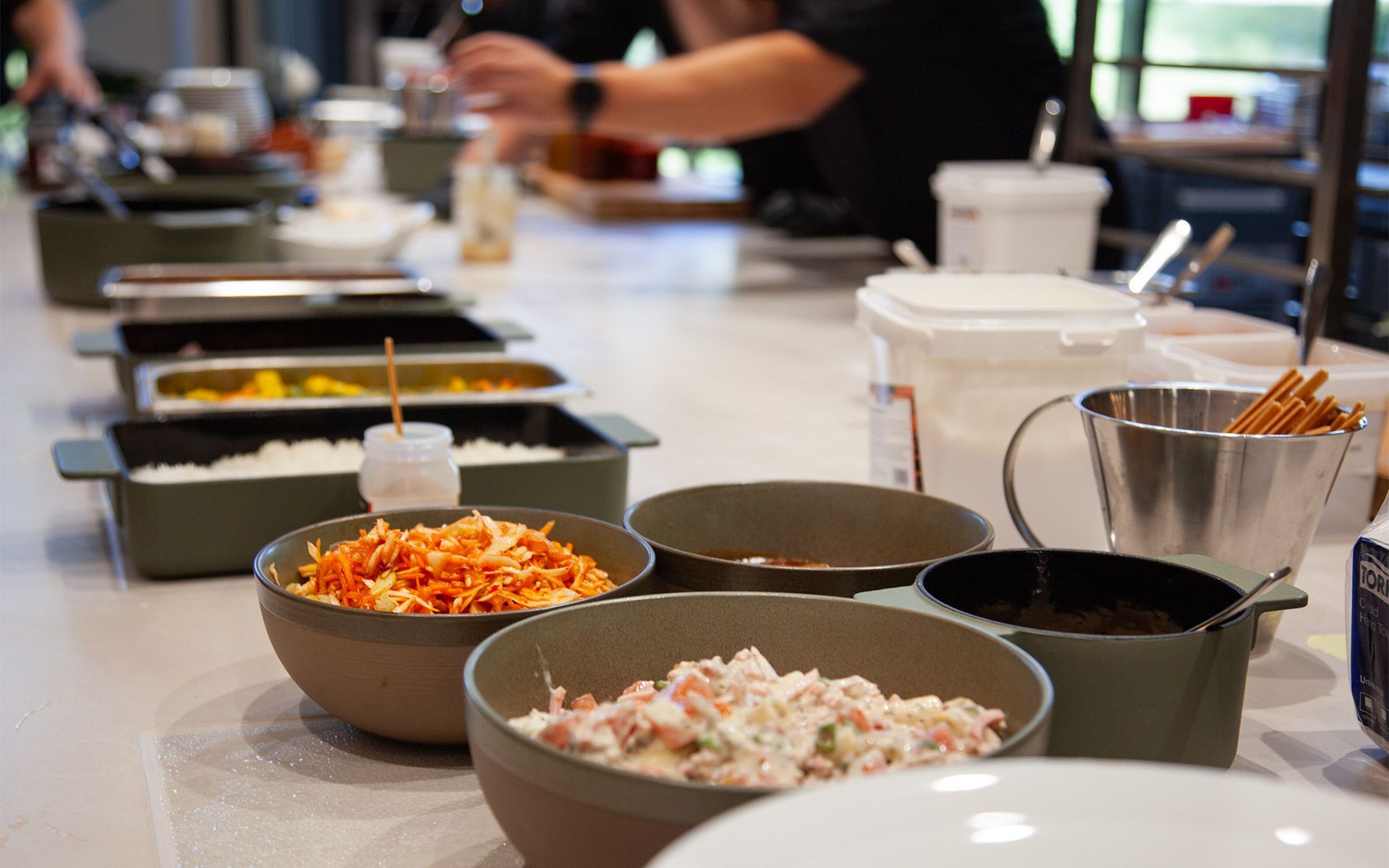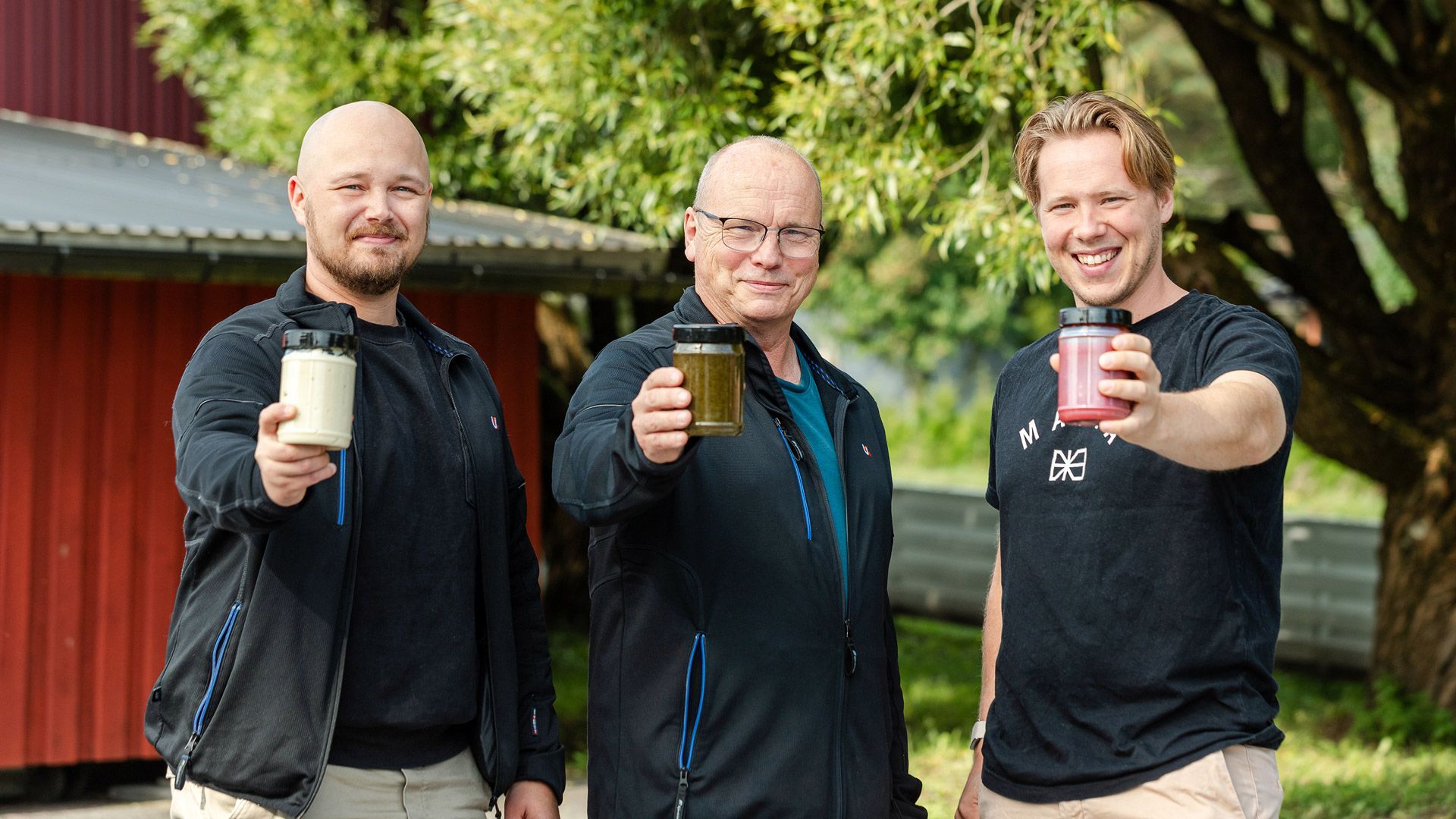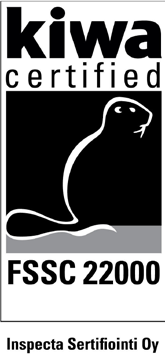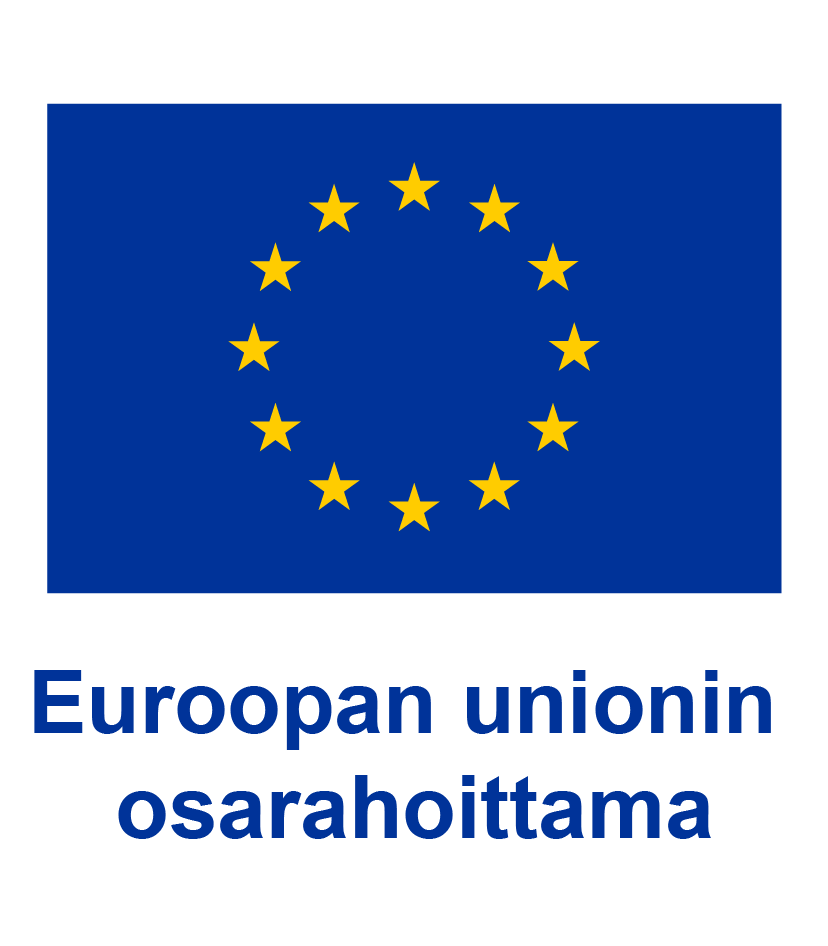Pysy maun tasalla!
"Fermentation Stopped People at Trade Shows" – atSauce Team Shares Their PLMA 2025 Experiences
atSauce Oy participated for the second time in Europe's largest private label trade show in Amsterdam. We spoke with atSauce CEO Juuso Tani and marketing specialist Yannick Julie about whether Finnish fermentation technology interests international buyers and what they learned about the international private label market. Now, a month after the trade show, it's the perfect time to evaluate the experiences and their impact.
Interview by: Sanni Marttila
Why PLMA Trade Show?
PLMA (Private Label Manufacturers Association) is Europe's most significant private label and contract manufacturing event, held annually in Amsterdam. The trade show brings together over 2,500 exhibitors from sixty countries and over 25,000 visitors, most of whom are retail buyers. For atSauce, PLMA represents a strategic opportunity to enter international markets and establish contract manufacturing partnerships with major players.
"The trade show means a lot to us, which is why it's also our biggest single marketing investment," explains atSauce CEO Juuso Tani. "All the key industry players gather in one place for two days. Although the trade show days are intensive, every visitor is genuinely interested in finding new solutions."
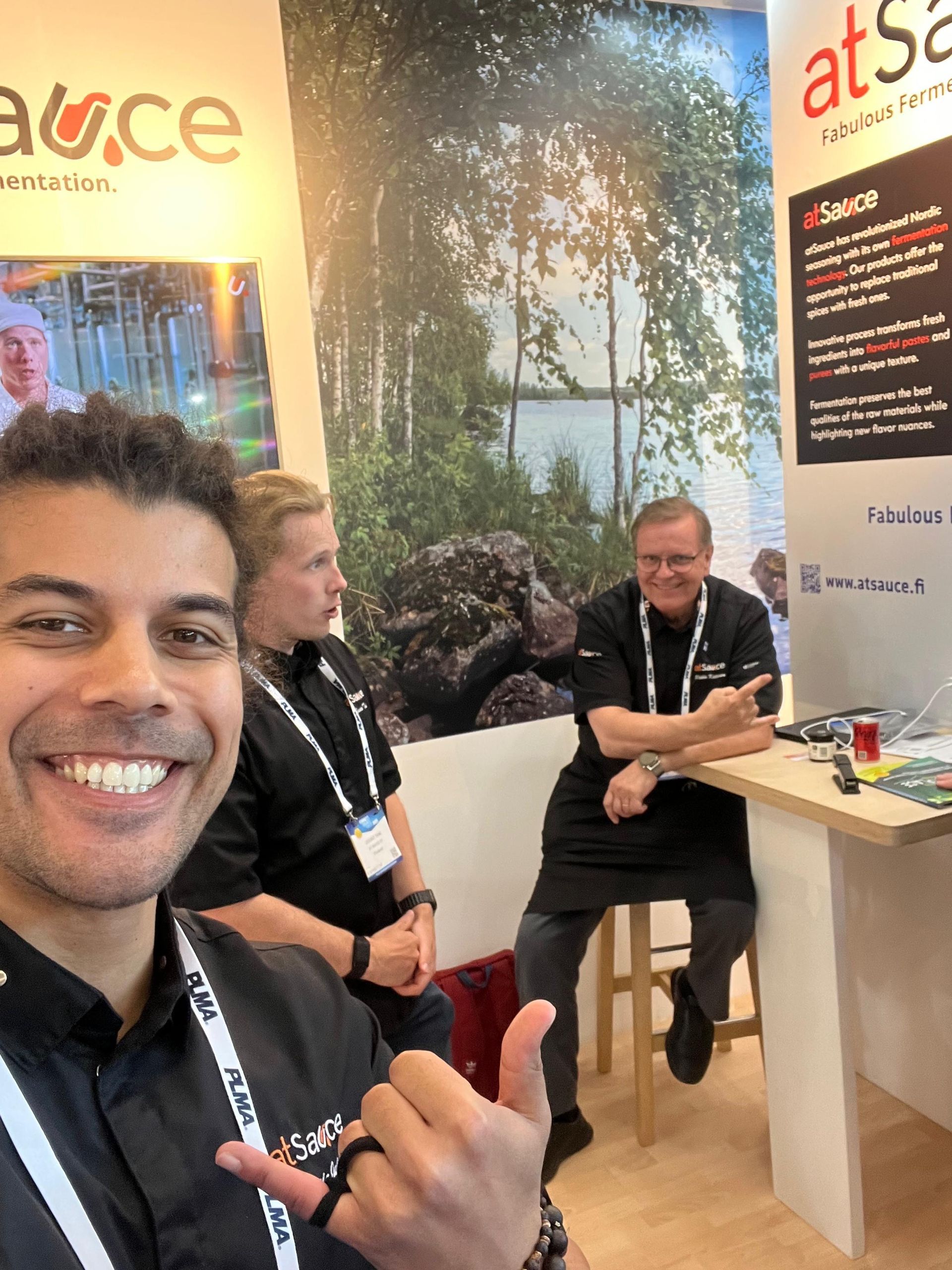
Preparation was more strategic compared to 2024. The team knew what to expect from visitors and what they were looking for. Learning from last year, the focus was on showcasing products rather than selling solutions. "Basically, we had a new concept and new products. The number of leads we received shows that fermentation interests the world," Tani explains. Compared to domestic trade shows, PLMA's expectations focus on the long term - opening markets for broader exports and increasing the company's international recognition.
"The number of leads we received shows that fermentation interests the world
Making Fermentation Understandable
Marketing fermented products to international buyers requires clear communication. atSauce's approach is simple but effective: "In short, less is more," the interviewees emphasize. "We explain how fermentation enhances flavor profile and color. For industrial customers, we explain that in certain applications, low pH products can improve the shelf life of the final product," Tani summarizes. Julie approaches the matter even more practically: "We explain what fermentation is and compare using fermented spices to dry spices. The customer can, for example, imagine being a painter taking flavors from jars. This makes fermentation understandable and concrete for buyers who haven't encountered this technology before."
Neither believes there are misconceptions about fermentation on the B2B side, but rather preconceptions. The most common misconception is that fermentation cannot be done on a large scale. "Industrial customers especially ask how much we can produce. Currently, we can produce about 30,000 kilos per week, which positively surprises many buyers," Tani says. The skepticism is understandable, as many fermentation processes have traditionally been small-scale artisanal methods, not implemented on an industrial scale.
The most common misconception is that fermentation cannot be done on a large scale.
International buyers also ask many certification-related questions, but the basic questions are surprisingly similar to those at home. Clean label thinking is on the rise: Buyers want to know if products are preservative-free and meet clean label requirements. "Clean label products are behind the work, and they are possible to make," Tani responds. Fermentation technology offers a natural solution to this, as the process itself can improve product shelf life by reducing artificial additives.
Finland Brand: Quality Interests, Price Concerns
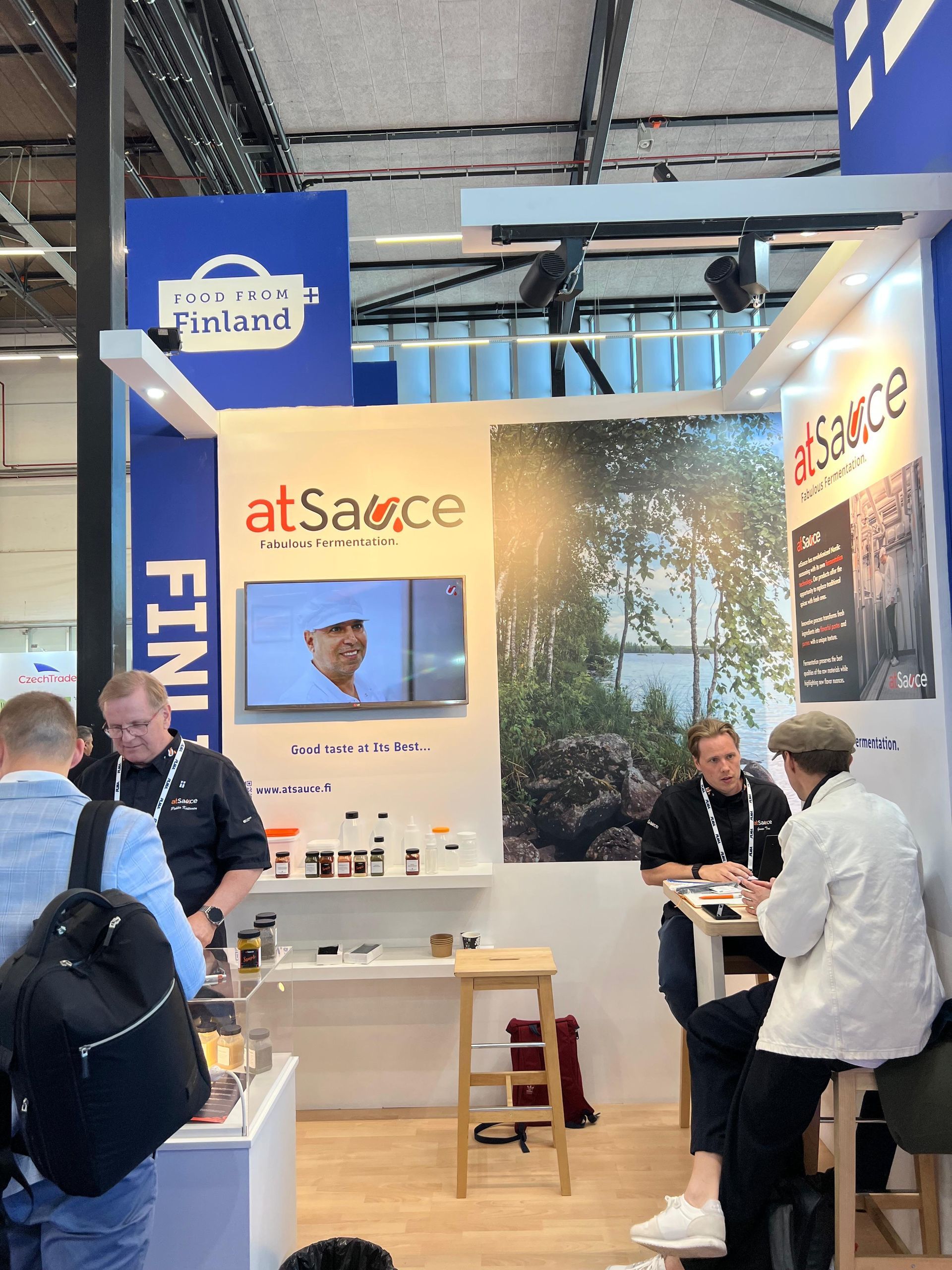
The Finland brand is like a double-edged sword in international markets. In perceptions, Finland is associated with quality work, innovation, and reliability, but at the same time, an inevitable assumption arises: Everything must be expensive. The pricing challenge is particularly emphasized in Central Europe, where pure raw materials and local production don't generate the same enthusiasm as in Finland. Finnish consumers are willing to pay extra for domestic quality, but Central European buyers think about price first. "It's not more expensive," states Tani when the conversation turns to atSauce's product pricing. The sentence reveals one of the challenges of internationalization: Perceptions can be more harmful than reality.
PLMA trade shows encourage believing in one's own work, as fermentation technology generated interest: "We received good feedback on our products. The genuine interest is evidenced by international buyers contacting us after the trade show," Tani explains. "It was nice to notice that fermentation interests people and Finnishness is valued," Julie adds.
One of the most surprising and best aspects of PLMA was the cooperation between Finnish companies. When dozens of Finnish companies gather in the same hall in Amsterdam, a team spirit emerges that is tangible. "Finnish companies support each other, and the atmosphere is good," Tani summarizes the core of the experience. Julie highlights the importance of her own team: "Working with our own team was great, and there were always people at the stand." The best moments of the trade show weren't born in large meeting rooms or official presentations, but in encounters: When a visitor stopped with interest at fermented lemon, when the team gathered for a coffee break to share the day's experiences, when Finnish colleagues exchanged tips and experiences in the corridor.
The Future of Food is Here
PLMA revealed where markets are heading and what consumers will demand next. Consumers are no longer satisfied with products being merely "natural," but they want to see and feel freshness. Ultra-processing is giving way, and there's a demand for authentic, recognizable ingredients.
Another significant observation concerned the growth of private label markets. Large retail chains are no longer satisfied with just selling other brands, but they want to develop their own unique products that differentiate them from competitors. "The general development is that large retail chains want to develop their own brands, which makes PLMA a good trade show," the interviewees observed. This development opens opportunities for companies that can offer something truly different, like atSauce with its fermentation technology.
Large retail chains are no longer satisfied with just selling other brands.
In terms of innovation, there was an interesting paradox. According to Julie, the innovation level was generally "quite saturated," with the same ideas being recycled in new packages. However, the situation was different among Finns, which may be due to the Finnish food industry being accustomed to innovating in small markets and forced to think outside the box. When Finnish thinking is brought to international markets, it stands out from the crowd.
Concrete leads and contacts came "from all corners of the industry," which was a positive surprise. At PLMA, you didn't encounter just one customer type, but the entire food industry ecosystem was represented. There were suppliers from packaging to raw materials, buyers from bakeries to beverage industry, product developers from small start-ups to large corporations. The bakery industry was interested in fermented flavor bases for baked goods. The beverage industry saw opportunities in new flavor combinations. Packaging industry players wanted to understand how fermented products affect shelf life requirements. Raw material suppliers wondered how they could support fermentation processes. The range was astonishing, but at the same time logical: In practice, if a product has flavor, atSauce can offer a solution.
Practical Tips for Other Finnish Companies
The key phrase is "clarity for the story." In their first PLMA experience, the interviewees learned that there's no time for complex explanations at international trade shows. The story must be crystal clear: Fermentation improves taste, color, and shelf life. Many things can be done represents atSauce's true potential, but sticking to the core shows strategic wisdom. Once fermentation technology has established its position, other opportunities will naturally open up.
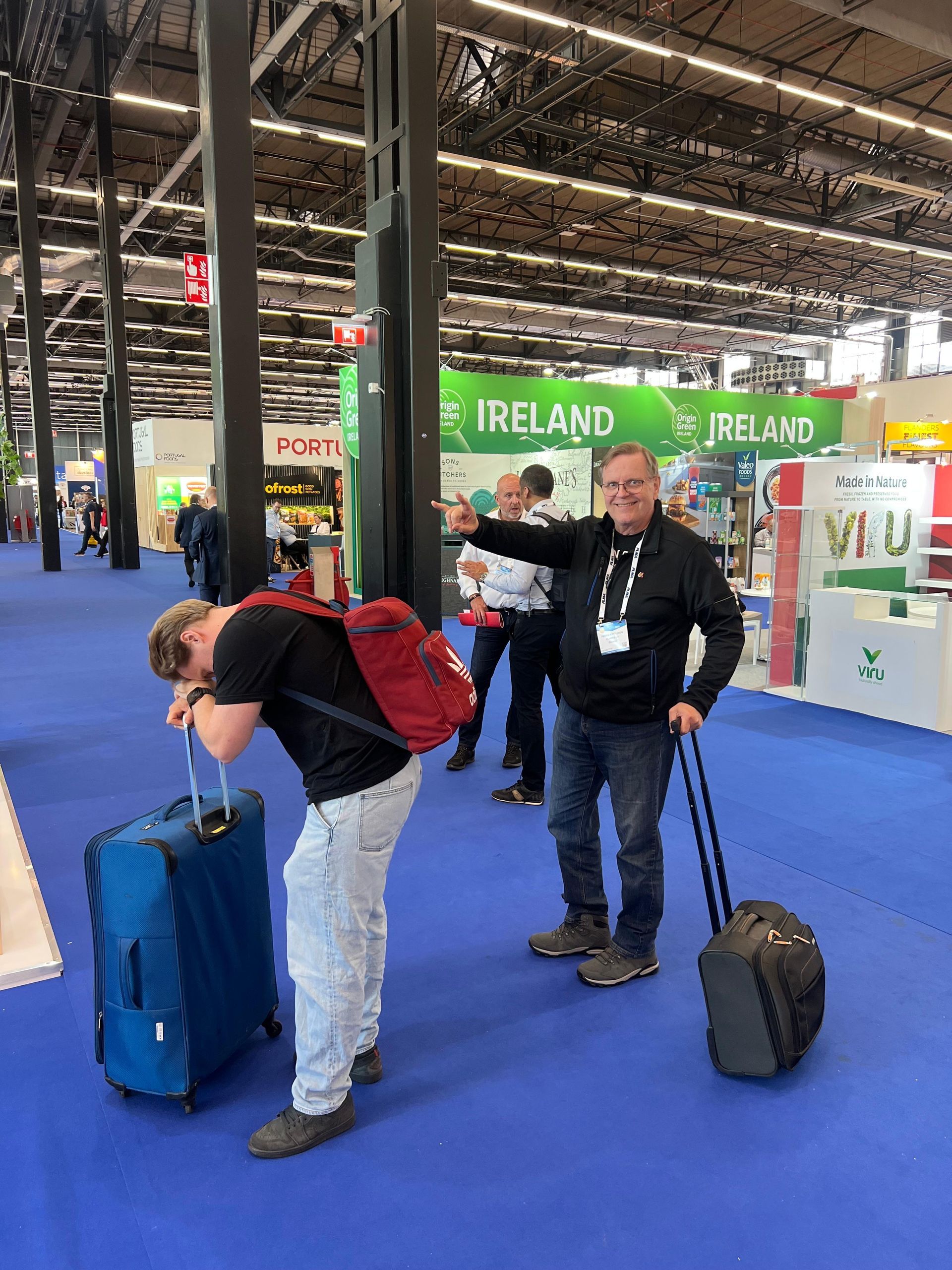
From atSauce's experiences, valuable advice can be gleaned for other Finnish food companies considering internationalization:
- Start early: "As early as resources allow. A product might suit some markets even if it hasn't been fully embraced among Finns yet," advises Tani.
- Avoid the biggest pitfalls: The biggest pitfall is assuming that internationalization would be quick and easy. Negotiating deals, building trust, and creating long-term partnerships often require face-to-face meetings.
- Prepare thoroughly: The second year's experience showed that careful preparation and utilizing the previous year's learnings make a huge difference.
- Utilize the Finland section: Collaboration between Finnish companies at trade shows works excellently and creates a good atmosphere.
Fermentation Interests the World
atSauce's PLMA experience confirms that Finnish food technology innovations interest international markets. Fermentation technology has clearly attracted attention, and the related questions and interest indicate growing demand.
Although internationalization requires long-term work and going to the location, PLMA offers a unique opportunity to connect with Europe's most significant private label buyers. atSauce's experience encourages other Finnish food companies to seize international opportunities, as long as they remember that success requires time, preparation, and courage to go out into the world with a briefcase in hand.

Summary: atSauce's Key Learnings from PLMA 2025
- Fermentation technology generates genuine interest in international markets.
- Industrial scale positively surprises: 30,000 kg/week production capacity convinces buyers.
- Clean label trend strengthens: Preservative-free solutions are in demand.
- Finnish innovation stands out in international competition.
- Private label markets are growing and offer opportunities for specialized operators.
- Finland brand is a strength when pricing is competitive.
- Long-term commitment pays off: The second year was clearly more successful than the first.
Täällä jaamme tuoreimmat kuulumiset, kätevät vinkit, inspiroivat asiakastarinat ja muut herkulliset jutut suoraan meiltä sinulle. Kurkkaa kulissien taakse, nappaa ideoita omaan arkeesi ja tutustu ihmisiin sekä projekteihin atSaucen takana.





